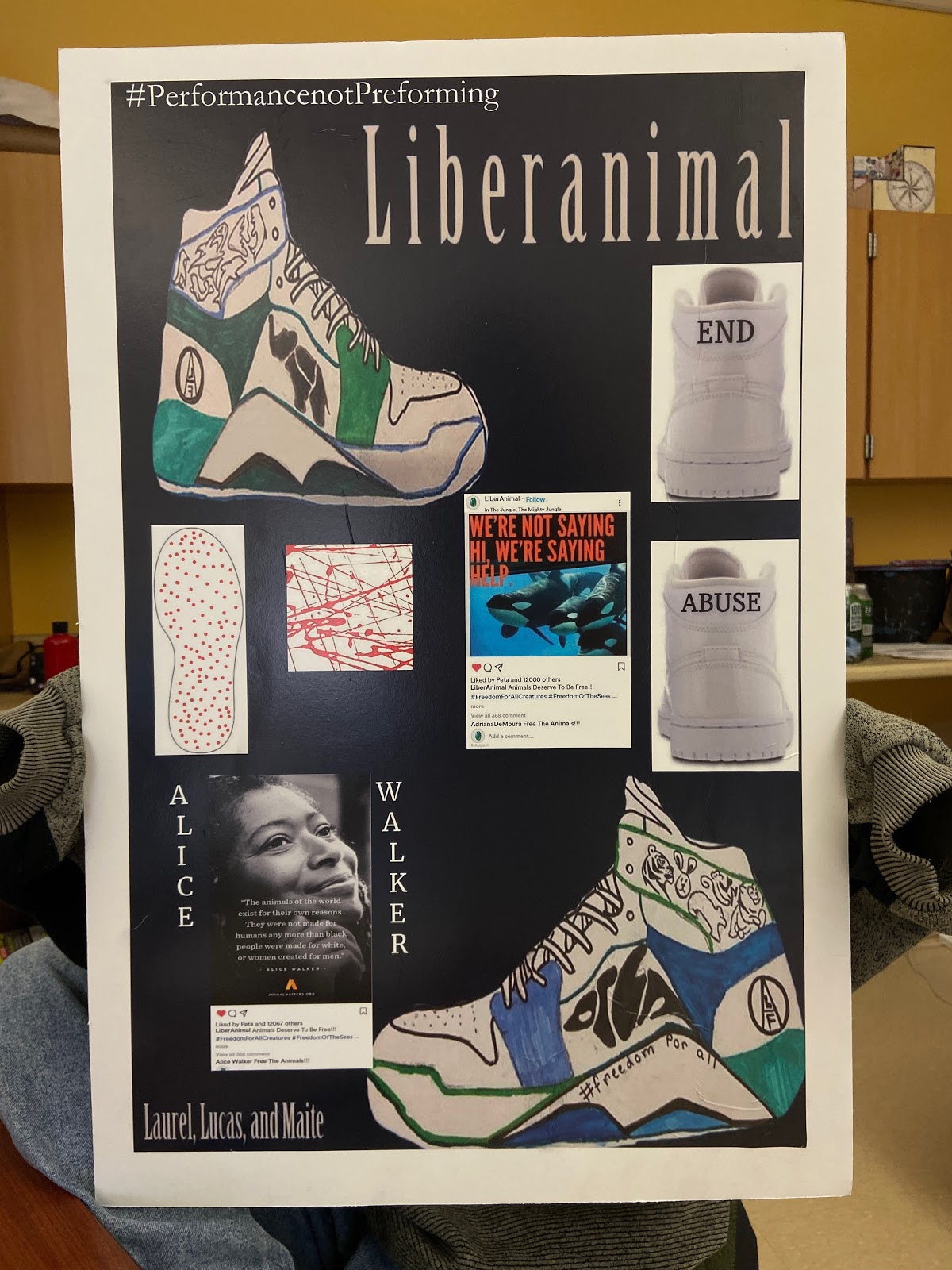The Evolutions program at the high school is debuting a new project, the Design Shoe Challenge, which gives students the opportunity to develop a product that raises awareness about a cause they are passionate about and pitch their idea to real-world professionals. The project is inspired by an organization within the NFL, called “my cause my cleats”, where athletes have the ability to advertise causes they care about on their shoe to attract more media attention to the issue.
The project requires that students individually identify a cause personal to them, and then justify its importance to their potential group members. Each group decides amongst themselves which of their causes is most important to the group collectively, and which cause would be most attractive to potential customers of their product.
“I think the hardest part of this project was picking a topic because there were so many that really hit home for me, but we needed to find a topic that was important to all of us,” said Evolutions student Maite Santos ’21.
“You always have to go over what you worked on with your team, because not everyone is going to like the design as much as you. You have to be okay with having other people’s ideas incorporated into the design. In the end, it’s a group project, so the whole group has to be proud of the end result,” said Santos.
Santos and her team chose to focus on animal abuse and maltreatment in establishments like Seaworld, using research to inspire their design.
During this process, the teams were not designing their shoes to appeal to themselves and their own taste in fashion, but they had to market their shoe to specifically targeted audiences, which they identified in their project planning.
“This raises the question of how do you design for someone else, and take your personal preference out of it,” said Henes. “This project is not about you and what you would wear, it’s about how you raise awareness for a cause you care about, and how you would actually connect with someone who would use your product. We can all make something, but if no one wants it then what is the value?”
After they developed their product, marketed it appropriately, and identified a target audience, the students then had to identify a pitch and present at Babson College. They created a pitch board and gave a five-minute presentation to local professionals in the business, design, and fashion industry. The teams had to be prepared to answer follow up questions and justify the decisions that they made during the design process to complete strangers.
According to Henes, the design process is typically the hardest part for students, because this is the first time they have had the opportunity to present their learning to someone outside of the school system, which encourages students to do their best. To help students prepare for the formal presentation, the Evolutions program held seminars with people who deal with public speaking in their everyday jobs.
“As much as it was really stressful, my favorite part of the project was going to Babson and presenting in front of real professionals. It was really cool because they do that stuff for their job and they work in design or business or fashion, so it was really cool to have the opportunity to pitch for these people and tell them about our idea. I got pretty nervous just because I cared a lot about the project, but I feel like our pitch went really well,” said Santos.
Another benefit of the shoe design project was its emphasis on student independence. The success of the shoe design project depended on student accountability, considering that the schedule was individually decided by each team, and each team member was responsible for having a set amount of work done by a certain deadline. Because teachers played a minimal role during the process of designing the shoe and pitch, it was up to each member of each team to take ownership of their work. Henes said that this increase in responsibility resulted in students feeling pride in their end product, because they worked so hard on something uniquely their own.
“If you’re learning about something you are passionate about it can be really rewarding. People will listen to you, or in this case buy things from you, if you have a reason or a personal connection to whatever you’re trying to sell. It gives validation to your argument or product,” said Evolutions student Laurel Bragdon ’21.

